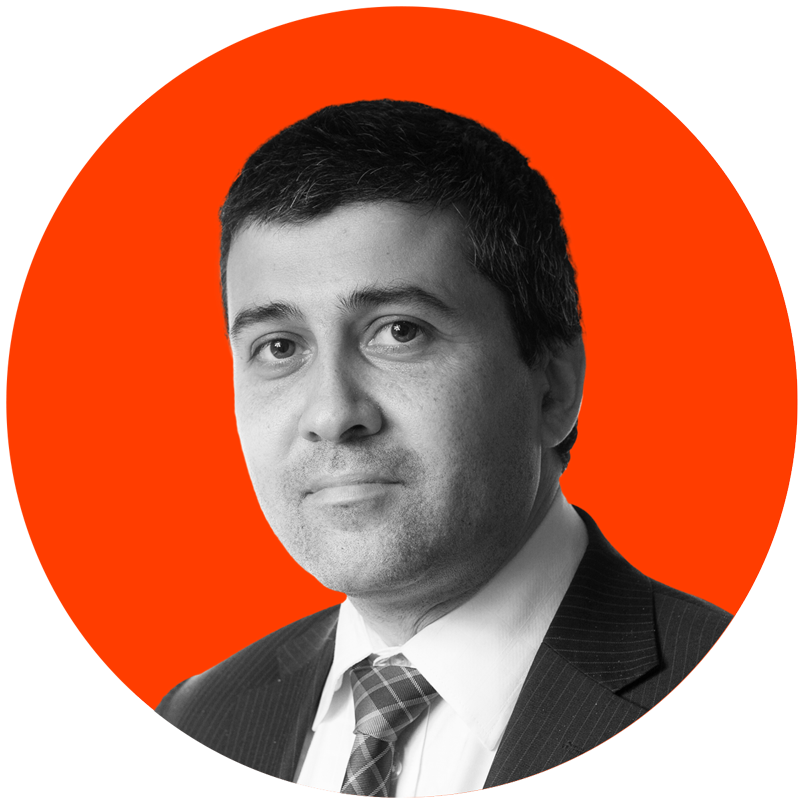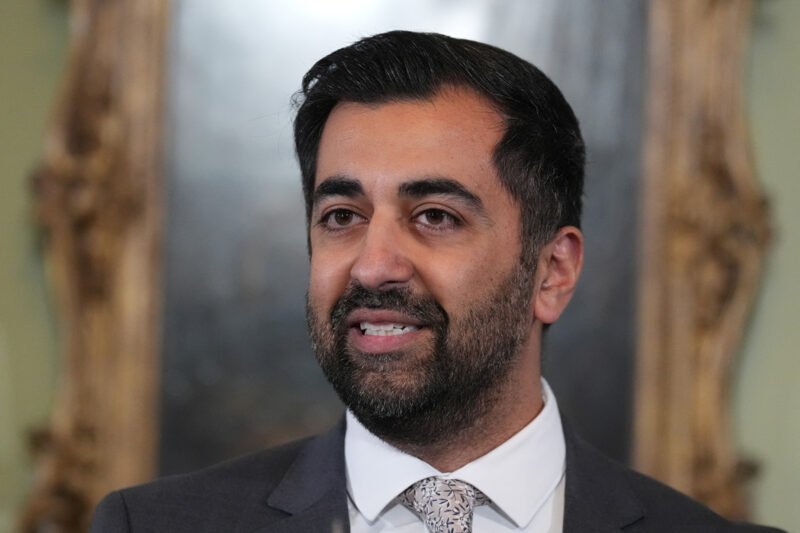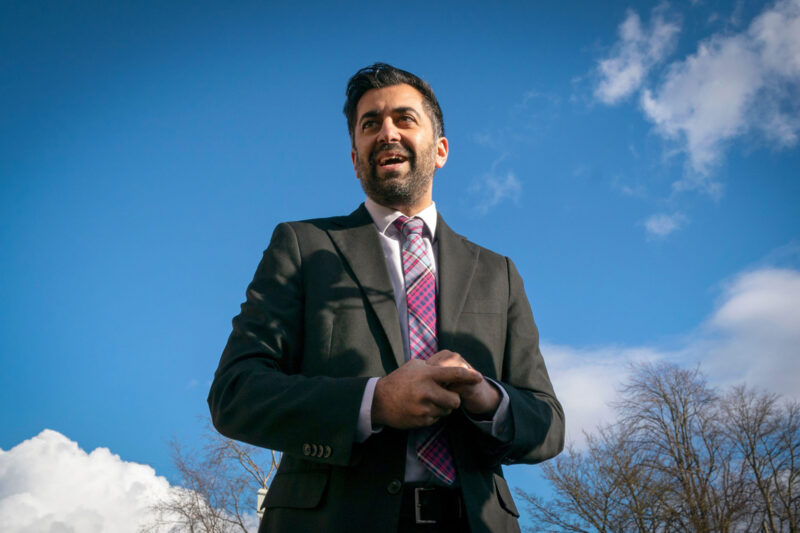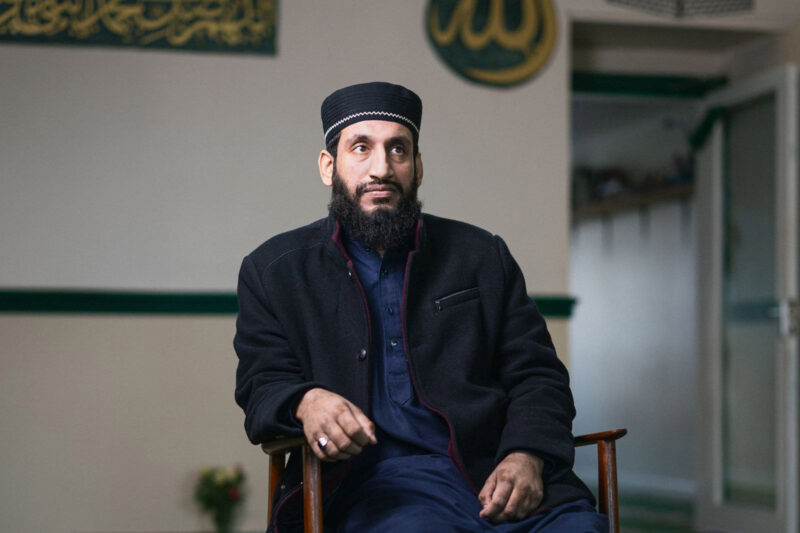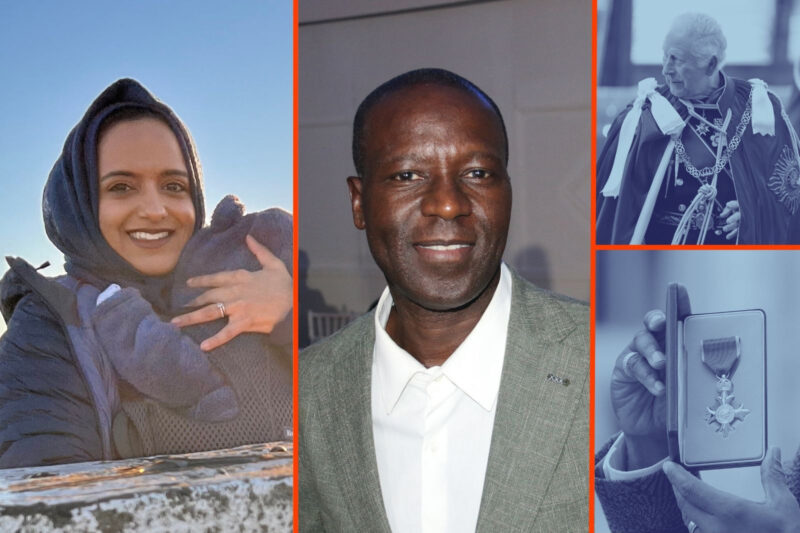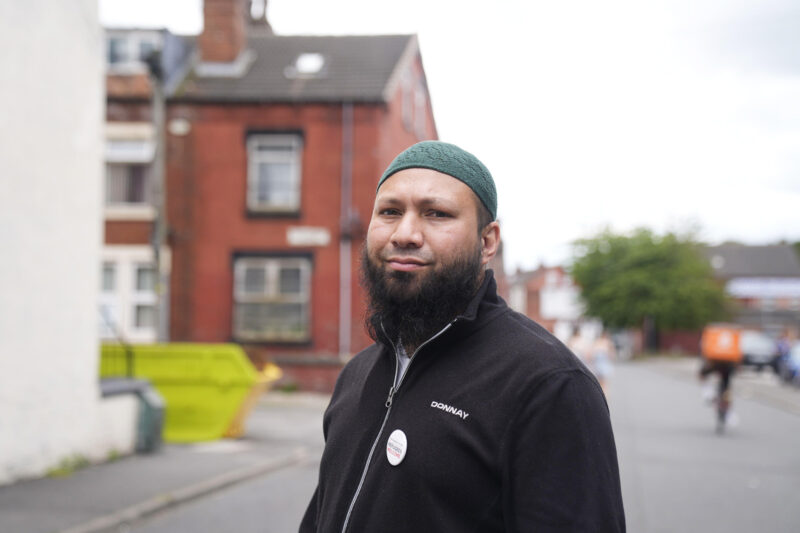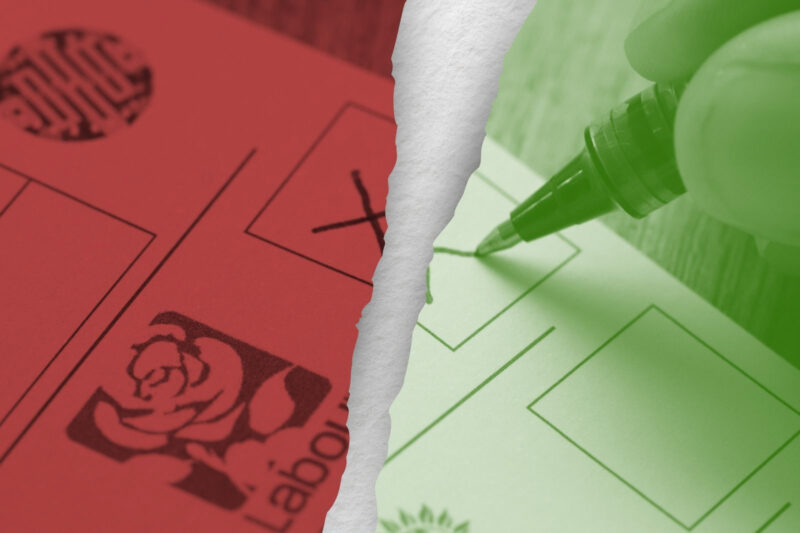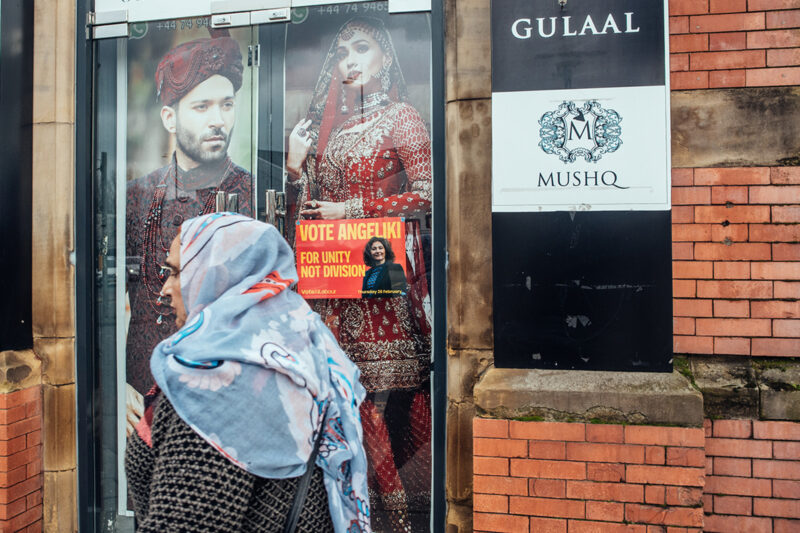Humza Yousaf and the race for Scotland’s top job
As the SNP leadership contest shows, diversity has become a new normal in the country’s politics
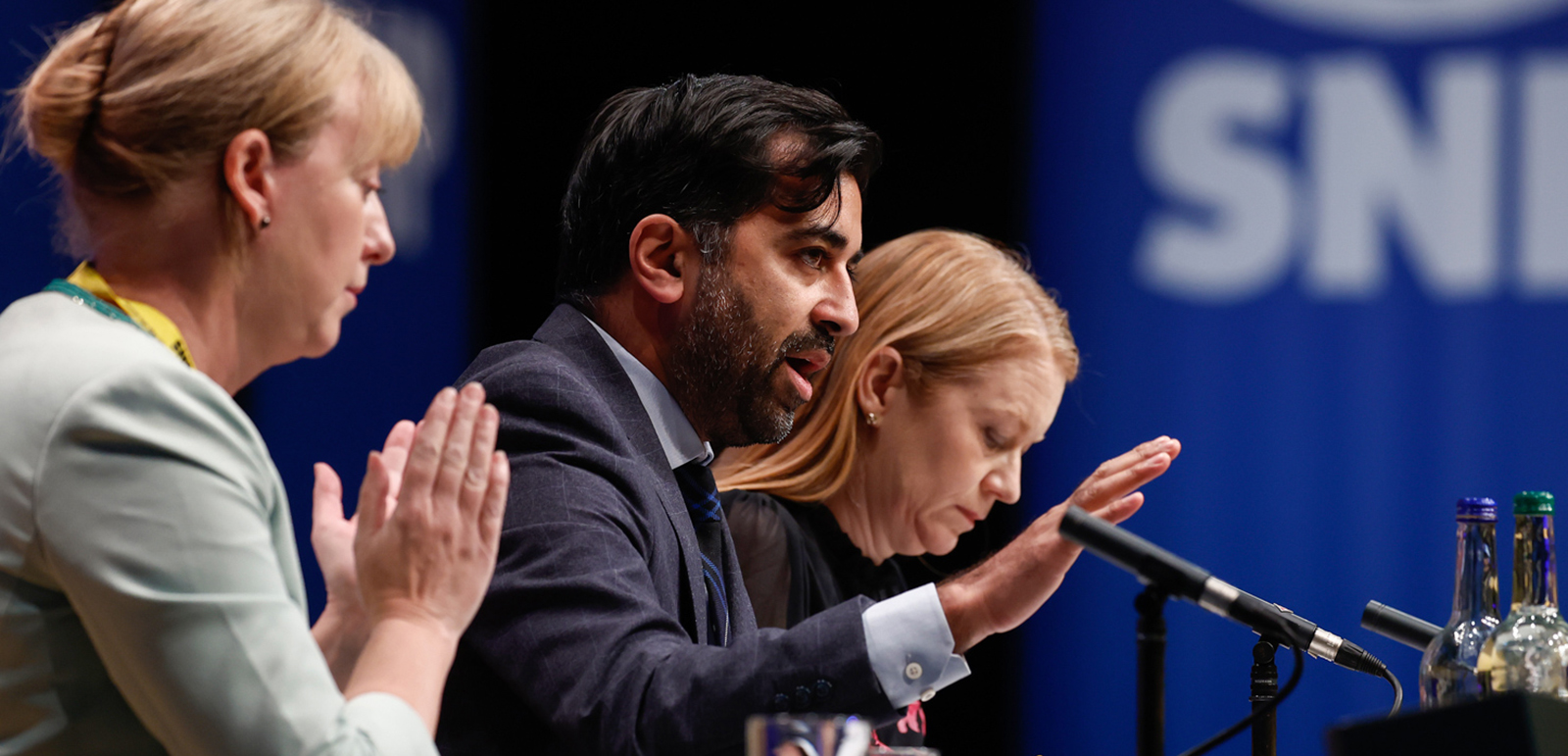
Nicola Sturgeon’s surprise resignation as first minister on 15 February has created a wide-open contest for the leadership of both the Scottish National Party and the country itself. Over the following weekend, bookmakers listed three different favourites in as many days. Now the field has narrowed to three candidates: Finance Minister Kate Forbes, former Minister for Community Safety Ash Regan and Health Secretary Humza Yousaf.
Several contenders have quickly stood down and Forbes has hit early turbulence, owing to her views on LGBTQ+ issues. These developments have pushed Humza Yousaf, the closest thing to a pro-Sturgeon continuity candidate the party has, into the position of clear frontrunner.
There may be more twists and turns before the votes are cast and counted in March. But it has become more likely than not that, while fasting for Ramadan, Yousaf will be called to serve as the first Scottish Asian — and the first Muslim — first minister.
Such an outcome would be deeply symbolic, decisively reinforcing the SNP’s commitment to rooting its campaign for independence in a civic patriotism that welcomes and embraces all Scots. With Rishi Sunak in Downing Street, it would be another sign of how ethnic diversity has become a new normal at the top of British politics, in a way not seen in any other European democracy.
It is also telling that controversy about the role of faith in public life has provided a significant boost to Yousaf’s candidacy. Matters of religion have dominated the opening day of the campaign, but the hard questions were being directed towards Forbes, Yousaf’s Scottish Presbytarian rival, rather than the Scottish Muslim candidate.
As a member of the Free Church of Scotland, Forbes said in televised interviews that she would have voted against equal marriage as a matter of conscience, but that she still accepted the democratic consensus to bring that right into law. Her comments proved disastrous, losing Forbes the support of parliamentary colleagues who had nominated her as party leader.
Ultimately, any politician seeking to lead a modern democracy will need to give a public account of their vision and values, along with their policy proposals. Accordingly, candidates of faith may be asked what we could call “the JFK question” of what impact their religious beliefs will have on their public role. Kennedy, running for US President in 1960, when no Catholic had held the office before, felt it essential to emphasise the strength of his commitment to the separation of church and state.
“I am not the Catholic candidate for President. I am the Democratic Party’s candidate for President, who happens also to be a Catholic”, he said.
‘It is also telling that controversy about the role of faith in public life has provided a significant boost to Yousaf’s candidacy’
Yousaf could have been channelling JFK in his LBC interview with Andrew Marr on 20 February. “I’m a supporter of equal marriage. I’m a Muslim. I am proud of my faith,” he said. “I will be fasting for Ramadan in a few weeks time. But what I don’t do is, I don’t use my faith as a basis of legislation. What I do as a representative, as a member of the Scottish parliament is my job to bring forward policy and pursue it in the best interests of the country.”
His underlining of his position as the socially liberal leadership candidate is likely to chime with many party members.
Scottish attitudes on LGBTQ+ rights have shifted dramatically over the past two generations. It was only in 1981 that homosexuality was decriminalised in Scotland, compared to 1967 in England and Wales. Both SNP MPs in that parliament, Donald Stewart and Gordon Wilson, opposed the move. At the turn of the millennium, after devolution, a million Scots voted in an unofficial private referendum, organised and funded by SNP donor and businessman Brian Souter, to oppose the repeal of Section 28, legislation that prohibited the “promotion of homosexuality” by local authorities. Now, Scottish Social Attitudes surveys show an increasingly broad national consensus on equal marriage, including most Scottish Christians. Many SNP members are proud that their party led that reform in 2014.
Scotland’s recent gender recognition bill has been considerably more polarising. Ipsos-Mori in Scotland has reported that half of Scots approve of the UK government’s intervention to block the bill — including one-third of SNP supporters — and that one in three oppose it. Yousaf is committed to taking the UK government to court over its intervention, while Forbes and Regan, who resigned her ministerial position in protest at the bill, say they would ditch the bill. Yousaf’s position has majority support inside the party.
With Anas Sarwar leading the Scottish Labour Party, the big political arguments in Scotland could soon be led by two Glasgow-born sons of Pakistani immigrants to Scotland. However, the visible diversity at the very top of Scottish politics somewhat exaggerates a more gradual pace of progress.
It is only four years since Yousaf and Sarwar gave a joint interview to challenge Scotland’s parties to address their diversity deficits. Just four of the first 306 MSPs elected in the first five Holyrood elections had been from ethnic minority backgrounds. There was a tripling of diversity — from two to six MPs out of 129 — in the May 2021 Scottish parliament election. But Anum Qaisar winning the 2021 Airdrie and Shotts by-election for the SNP makes her the sole ethnic minority politician among Scotland’s 59 Westminster MPs
Scotland is not nearly so ethnically diverse as England. The delayed 2021 census will show a rise in the non-white population, which doubled to 4% between 2001 2011, to an estimated level of 5-6%. In 2021, both Sarwar and Yousaf supported an all-party group report on Islamophobia in Scotland, published last year, which detailed everyday experiences of anti-Muslim prejudice and warned that “Scottish exceptionalism” had the potential to tip from the positive aspiration of an inclusive society into a tendency to ignore the challenges presented by racism and other forms of prejudice.
While there are challenges to ensuring that substance follows symbolism, symbols do matter. As monarch, King Charles III must remain above the political fray, but he is also a longstanding advocate of multiculturalism, who wants his coronation in May to convey the sense of duty he feels towards the protection of diversity in the UK.
He may consider it an auspicious coincidence if, within a few months of taking the throne, his government includes not just the UK’s first Hindu prime minister but also a Muslim first minister of Scotland. However, in that office, Yousaf’s ultimate goal would be to lead Scotland to independence. Many who hope that he does not succeed in that task may still think his victory in the SNP leadership contest would suggest that our somewhat disunited kingdom is at least becoming ever more at ease with the full range of people it is home to.
 Newsletter
Newsletter

